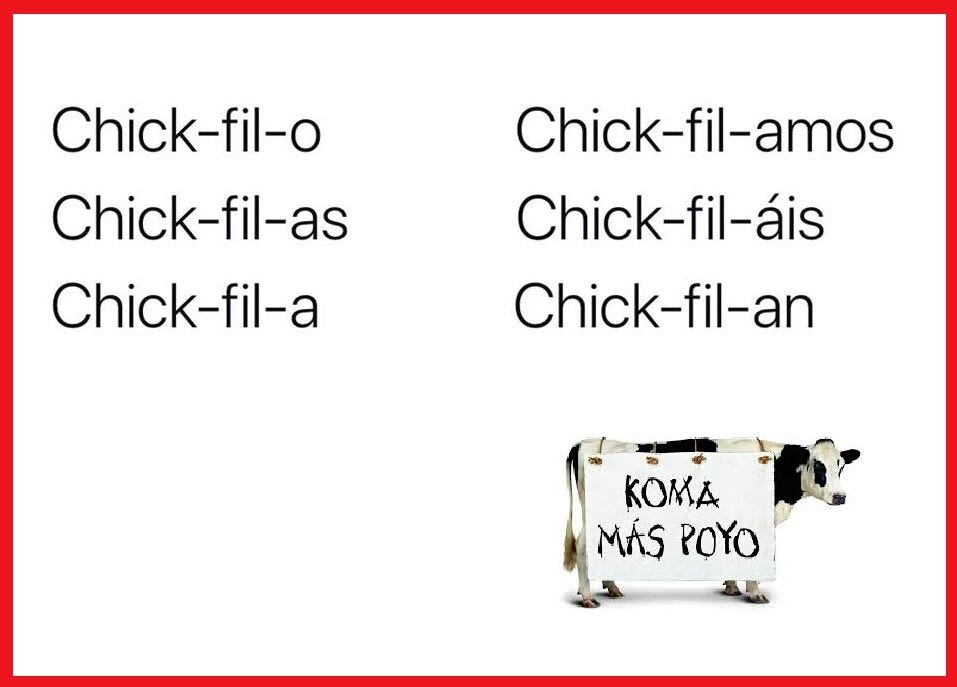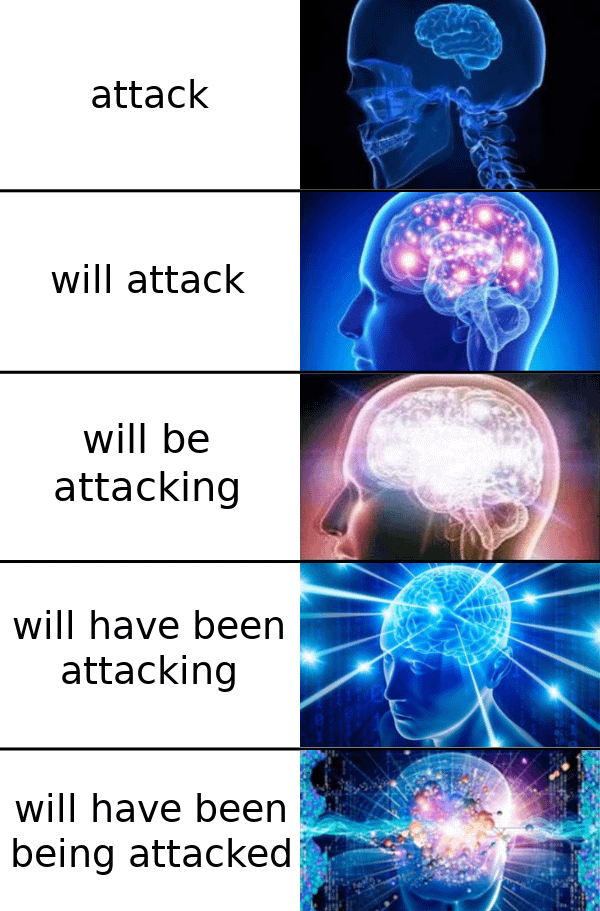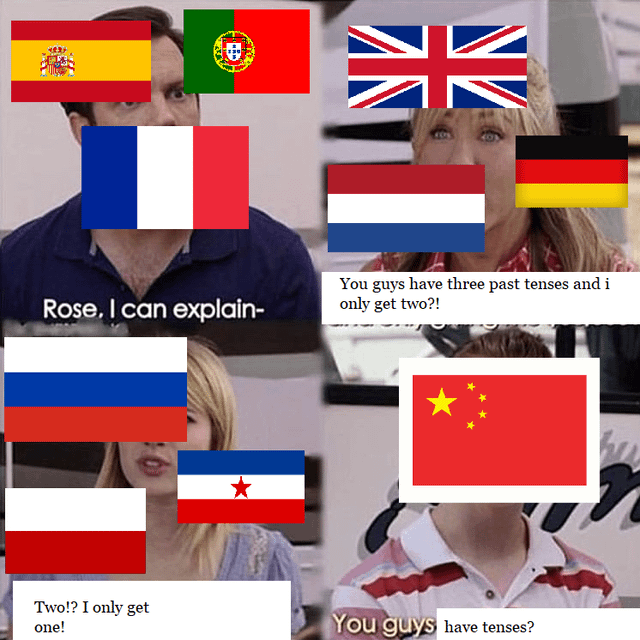To have had or not to have had
Understanding the intersection of grammar and vocabulary
Welcome, aspiring polyglot! I have long fallen on the vocabulary side of the debate when it comes to determining whether grammar or vocabulary is more important when learning a new language. A large part of this is that I view grammar, particularly conjugations, as an extension of vocabulary rather than a separate beast in and of itself.
This may be due to the fact that English is my native language and the best way I can explain it is that, in the romance languages, will is not a word. Some people may think this limits English as a language, but I tend to disagree. Having everything wrapped up in verb tenses is convenient, but can often leave a lot to be desired when trying to express something beyond surface level.
Will
One of the most common issues that native English speakers run into when learning romance languages, or really any language with a future tense conjugation, is looking for the word “will” when forming their thoughts. It makes sense, though, considering that we have no true future tense in English.
Unfortunately, this makes things difficult when learning other languages, specifically the romance languages. In the romance languages will is not a word, it is a verb tense. That means the longer you spend searching for the word “will” the longer you will struggle to form your thoughts. Several tenses in the English language would actually greatly benefit from being further broken down.
For example, there are several past tenses in every romance language (most languages generally) and one example that I like to use it the “things one used to do” past tense which is different from the “things one did” past tense. Using the correct one in the correct situation isn’t absolutely necessary, but it adds a depth to the things you say that cannot be otherwise imitated.
Would
Similarly, the conditionals of “would”, “could”, and “should”, are not words. While they can be formed through conjugation, they do not exist in and of themselves to stand alone. In order to form any conditional, you need verb conjugation in romance languages. While frustrating, sometimes the biggest problem people have is that they are simply unaware or forget.
These every day words in English can be destructive to confidence in a new language because the mechanisms upon which they operate are vastly different. Learning to perceive the word “would” as a tense rather than a verb in and of itself is a challenge, but it is a challenge that will make you, hopefully, more deliberate with your words in English, too.
Far and away the biggest issue most people have when learning a new language is that they hardly understand what they are saying in their native language. That is not to say native speakers are not fluent in their mother tongue, rather it is an automatic process rather than a deliberate one. Making the shift to start paying attention to the ideas you speak into the world is among the most challenging obstacles you face during language acquisition.
Have
Among all of the words that are not words, “have” is by far the most challenging to grasp for the vast majority of romance language learners. That is because we have two “have” verbs in English; and they are the same word. The auxiliary verb “have” in English, “avoir” in French, and “haber” in Spanish and the action verb “to have” in English, “avoir” in French, and “tener” in Spanish. Of these three, only Spanish has a different word for the auxiliary and the action verbs “have”.
This means you have to understand the grammar well enough to know which “have” is required in a given context. To put it simply, this auxiliary verb is why we can form the sentence “I have had” in English. The “had” here is the action verb “to have”, it’s past participle (pp) and the “have” here is the present tense conjugation of the auxiliary verb “have”.
This means that you not only have to remember that have controls the tense in some cases, but also that “will” and “would” are not words, but conjugations. In romance languages, if you want to use “will have” or “would have” you must conjugate the appropriate “to have” verb to reflect the future or conditional tense you are trying to use.
Conclusion
English is a unique language in that many of the words we use are actually verb tenses in other languages. This makes other languages more difficult to learn, sure, but usually that is because we don’t know about these things when we are getting started. The moment you recognize that will is a tense, it will be pretty difficult to go back. After that it’s all about mastering conjugation in real time.
At the same time, the most significant challenge in most romance languages is the haves. Both because they are the same word, sometimes, and because they are different words, sometimes. Only amplified by the fact that they can both be conjugated. It is difficult to overcome all of these challenges, but you can do difficult things and be great. So get out and master some verb tenses to become great. I am rooting for you.
Requests
If you have anything you would like covered you can reach out to me on X, Instagram, or at odin@secondlanguagestrategies.com.
Additional Resources
Don’t want to spend time playing catch up? Pick up the 3 Months to Conversational book now available on Amazon! 3 Months to Conversational
For more long form content be sure to check out the website and the FREE Language Learning PDFs we have available!
Subscribe for new content on YouTube and TikTok!
Learning Spanish? We have begun aggregating resources in you Spanish Resource Newsletter!
Don’t forget to pick up your very own French Language Logbook or Spanish Language Logbook








Is it really that bad? I thought they were okay, it’s all the damn irregulars that are so infernal.
Believe it or not the majority of crazy irregulars in Romance languages are also irregular in English. Do, make, say, and see being fantastic examples.